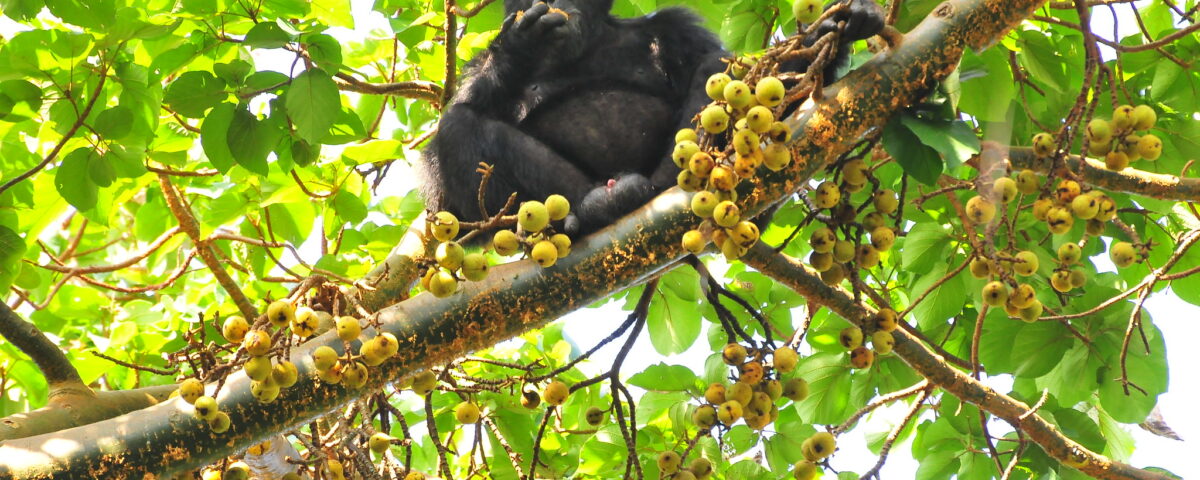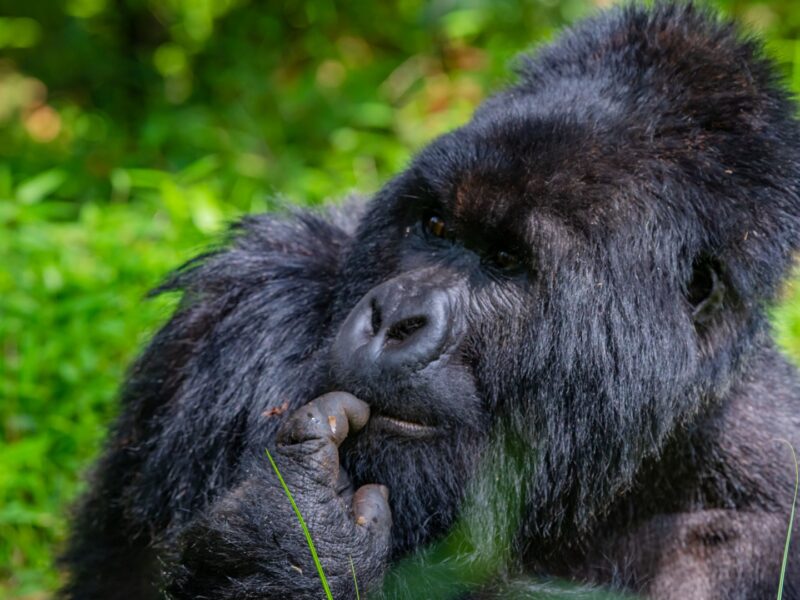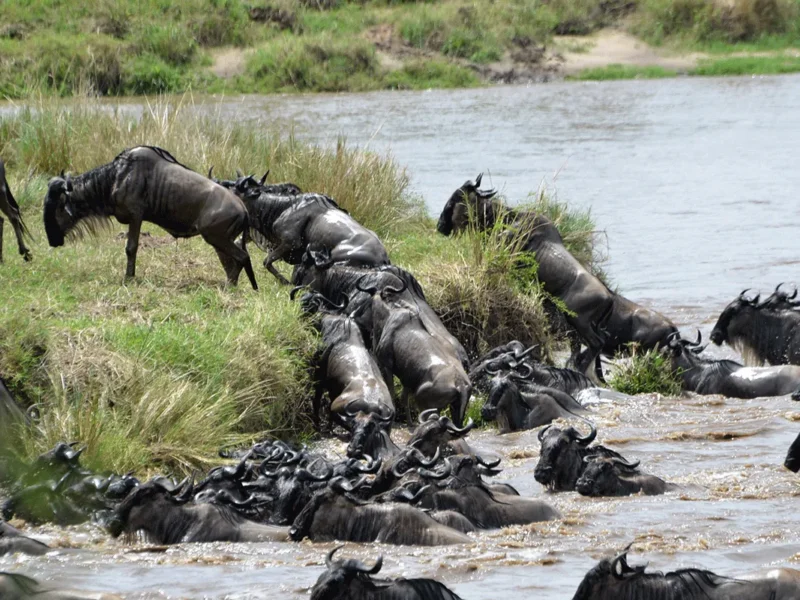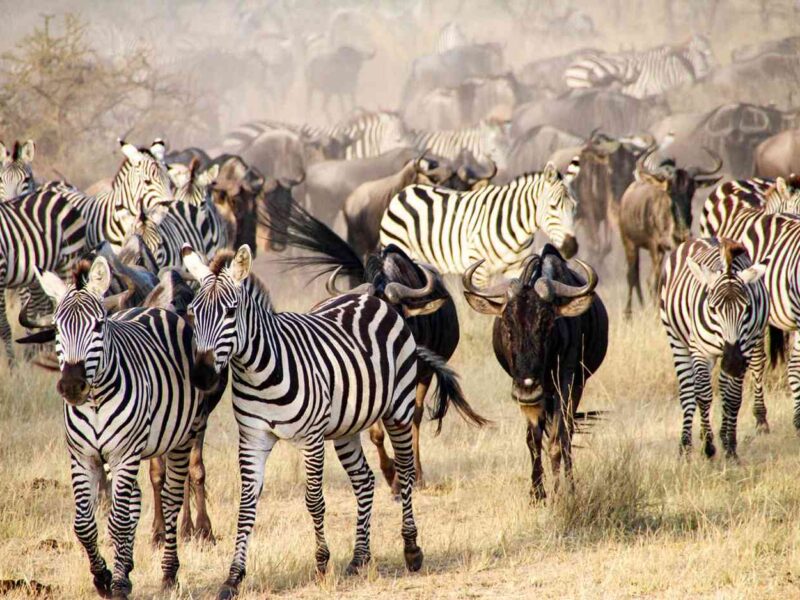
Serengeti Safari the Great Migration
August 27, 2025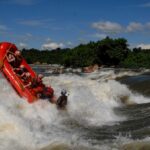
Jinja Known for Water Games in Uganda
August 27, 2025Travelling with Visual Impairment on Safari
with Ngeye Tours and Travel
Inclusive Adventures in the Heart of Africa
Travelling with visual impairment should never deny anyone the chance to enjoy the beauty of an African safari.
At Ngeye Tours and Travel, we believe that every traveller deserves the opportunity to experience the majesty of Uganda, Kenya, Rwanda, and Tanzania in a way that touches the heart and soul.
Safaris are not just about visual encounters; they are multi-sensory adventures that engage sound, touch, smell and emotion.
The roar of lions, the melodies of forest birds, the drumming of local cultural performances, and the gentle touch of traditional crafts all create memories that transcend sight.
For travellers with visual impairments, Africa becomes a place where imagination and reality merge, delivering moments of pure wonder.
Can People with Visual Impairments Do a Safari?
Many guests ask this question, and the answer is always yes.
Travelers with visual challenges enjoy safaris just as much, sometimes even more deeply, because they connect through senses that many overlook.
Whether it is Uganda Gorilla Trekking, chimpanzee tracking in Kibale, or listening to the sweeping sounds of elephants grazing in Queen Elizabeth National Park , the experiences become immersive when supported by professional guiding and personalized care.
Our specialized guides and assistants provide detailed descriptions of the environment and wildlife, narrating every moment with passion and accuracy.
They also use tactile methods to enrich the journey, letting travellers touch natural textures like tree bark, forest leaves, or handmade cultural artifacts.
In gorilla trekking, this communication creates an unforgettable bond, as travellers sense the presence of these great primates not just through sight but through sound, movement, and emotion.
Accessibility in Uganda Gorilla Safaris
Uganda Gorilla Safaris offer excellent accessibility for travellers with visual impairments.
Sedan chairs are available for those who need assistance during treks in Bwindi or Mgahinga, and flying options connect major safari destinations to reduce long road journeys.
The aim is to create comfort without losing authenticity.
Where to Stay on a Uganda Gorilla Safari?
Travelers with visual impairments can choose from lodges that prioritize accessibility while offering proximity to forests and wildlife.
Many Uganda Gorilla Safari Lodges provide personal assistants, room accessibility features, and staff trained in inclusivity.
This combination of wilderness adventure and hospitality ensures no traveller feels excluded from the magic of Africa.
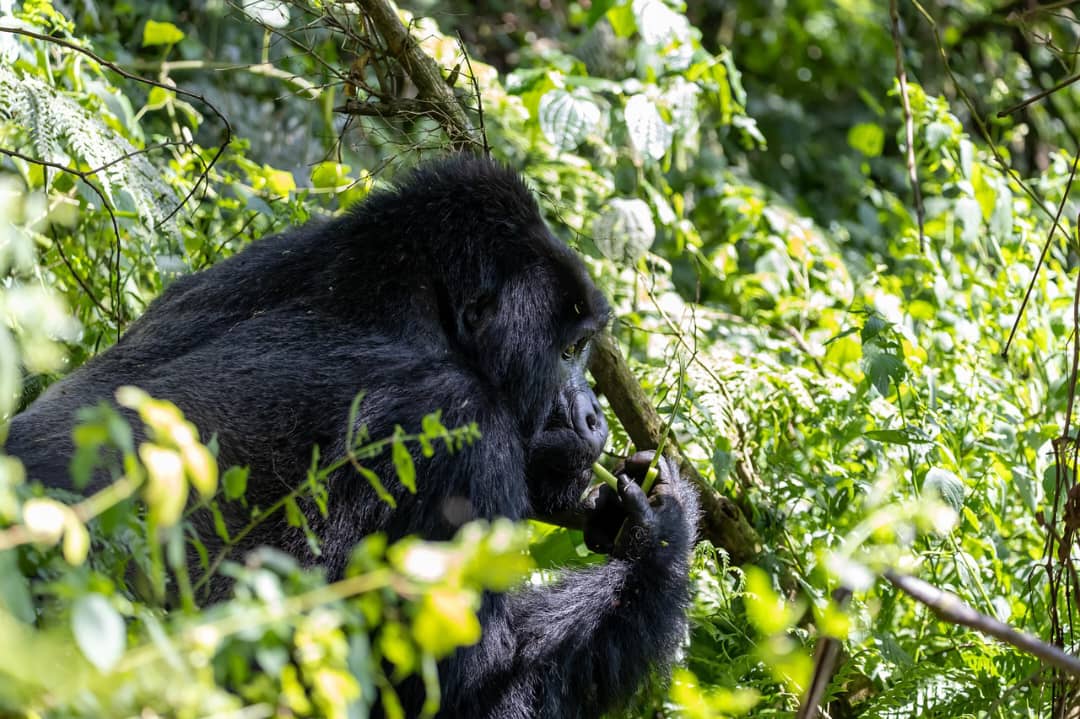
Uganda Gorilla Trekking
Cultural Experiences Around Safari Lodges
Beyond wildlife encounters, cultural immersion enriches the safari soundtrack.
Around safari lodges, evenings often include cultural dance performances, drumming sessions, and storytelling moments by local communities.
For a traveller with visual impairment, these experiences become deeply memorable because they emphasize sound, rhythm, and touch.
Feeling the vibrations of drums, listening to traditional songs, and holding handcrafted items made by local artisans creates a powerful connection with East African heritage.
At Ngeye Tours and Travel, we encourage travellers to embrace these cultural experiences as they make safaris fuller, richer, and more meaningful.
The sounds of dance and music, the feel of handmade crafts, and the warmth of local hospitality create bonds that live beyond the trip.
What to Pack for a Uganda Gorilla Safari?
Travelers with visual impairments need comfortable walking shoes, light clothing, a walking stick if required.
Audio recording devices can also be useful for capturing guides’ narrations and natural sounds to relive later.
Lightweight jackets for cool mornings, insect repellent, and a reusable water bottle are practical additions.
Uganda Gorilla Trekking arranges seamless transfers, ensuring smooth connections from arrival at Entebbe Airport to the heart of gorilla country.
We pride ourselves on handling every detail, so travellers can focus on the safari experience rather than logistics.
When to Go for a Uganda Gorilla Safari?
Timing is another common question: the dry seasons from December to February and June to September are ideal for trekking because trails are more manageable.
However, even in wetter months, the forest comes alive with sounds, scents, and freshness that appeal to travellers seeking a raw, authentic experience.
For visually impaired travellers, the seasons matter less for sight and more for accessibility, comfort, and availability of support staff.
Ngeye Tours carefully manages these details, ensuring every traveller’s journey matches their needs. Planning early secures permits, accessible lodges, and specialized guides.
Beyond Gorillas: Expanding the Safari Experience
Inclusive safaris also go beyond gorillas and chimpanzees.
Game drives in savannah parks such as Murchison Falls, Queen Elizabeth National Park, and Lake Mburo offer opportunities to experience elephants trumpeting, hippos grunting in rivers, and the deep rumble of lions at night.
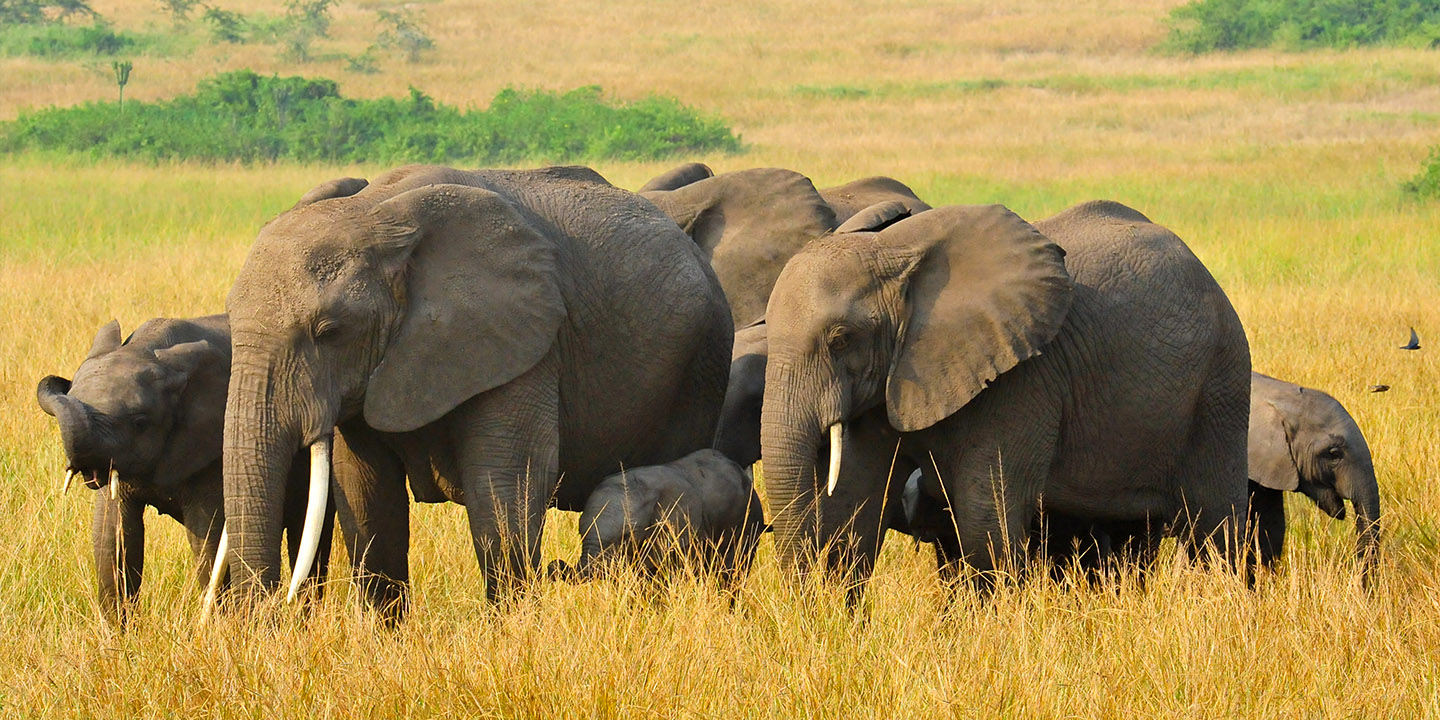
Queen Elizabeth National Park
Night Safaris and Soundscapes
Night safaris heighten the senses even more, allowing travellers to connect with nocturnal calls that bring the wilderness alive.
The sound of the Great Migration is a sensory marvel: the thundering hooves of wildebeest and the grunts of animals moving together.
Rwanda’s Volcanoes National Park also provides unique gorilla trekking moments, enhanced by the misty mountain atmosphere and the sound of birds echoing across the valleys.
How Ngeye Tours Creates Inclusive Journeys
Accessibility is about respect, preparation, and creativity.
Ngeye Tours and Travel trains its team to describe environments vividly and provide physical assistance where necessary.
Safari lodges are carefully selected to offer inclusivity alongside authentic African character.
We also integrate wellness and relaxation options such as spa treatments, fire-lit storytelling sessions, and guided forest walks.
For travellers who wonder whether such a safari can be meaningful without full sight, the answer lies in the richness of Africa itself.
The wilderness communicates beyond vision, and with proper guidance, travellers discover that the absence of sight enhances sensitivity to every other detail.
The Power of Uganda Gorilla Trekking for Visually Impaired Travelers
The experience of Uganda Gorilla Trekking for a visually impaired traveller is powerful.
The hushed silence as the group approaches a gorilla family, the sound of branches breaking as the silverback moves.
The breathing of gorillas nearby, and the descriptive guidance from assistants create emotions impossible to replicate elsewhere.
Every sound becomes sharper, every detail more intimate. Travelers return home not only with stories to tell but with a renewed sense of connection to nature and humanity.
Africa Belongs to Everyone
Travelling with visual impairment on safari is not a limitation but an opportunity to experience Africa differently.
Appreciating the sounds, textures, and emotions of the wild, and connecting deeply with people and nature.
Uganda Gorilla Safaris, cultural encounters, and immersive soundscapes combine to create a journey that is inclusive, inspiring, and transformational.
You discover that Africa belongs to everyone, and the safari soundtrack has space for every traveller to feel its rhythm.
By emphasizing accessibility, expertise and personalized service, we establish ourselves as a reliable authority in African tourism.


